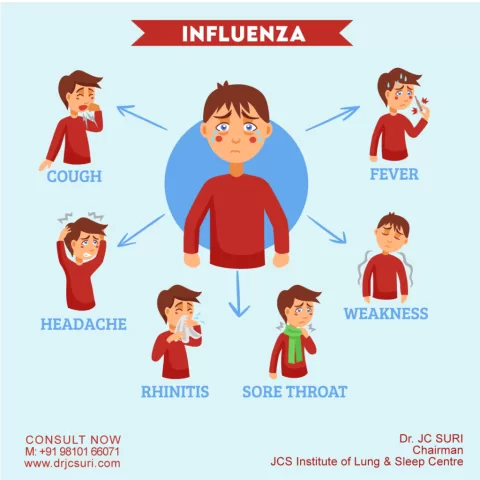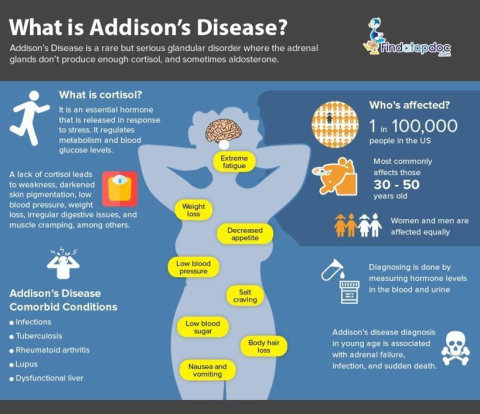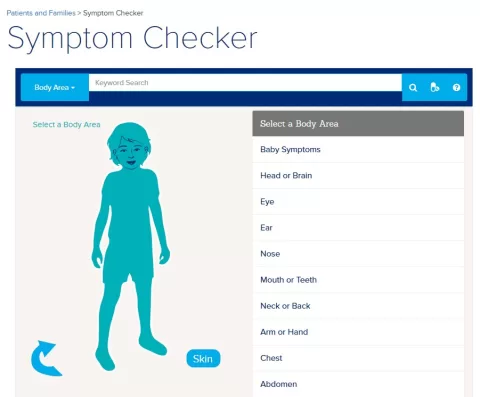The measles vaccine is a crucial tool in safeguarding public health and preventing measles outbreaks, which can be devastating. With the recent increase in reported measles cases, health authorities emphasize the importance of ensuring that vaccination campaigns are prioritized. The MMR vaccine, which protects against measles, mumps, and rubella, is recommended for all children as part of their immunization schedule. Parents must be vigilant and ensure their children are vaccinated, especially given the alarming symptoms associated with measles, such as high fever, cough, and a distinctive rash. With rising concerns over measles transmission, getting vaccinated has never been more critical to protecting our communities and enhancing herd immunity.
Vaccination against measles is not just a personal choice; it’s a collective responsibility that plays a significant role in controlling the spread of this infectious disease. Alternative terms such as measles immunization and MMR shot highlight the importance of protecting oneself and others from the severe consequences of this viral infection. The current climate of rising measles cases underscores the need for community awareness and proactive measures through proper immunization. Symptoms of measles can range from mild to severe, placing individuals, especially young children, at risk for serious health complications. As we navigate through these health challenges, understanding the importance of measles vaccinations in maintaining public health is essential.
Understanding the Measles Vaccine and Its Importance
The measles vaccine is a critical component of public health. It not only protects individuals from contracting the disease but also helps create herd immunity to prevent outbreaks. Vaccination campaigns promoting the measles, mumps, and rubella (MMR) vaccine have significantly reduced the incidence of these diseases in many countries, including Canada. Health authorities recommend that all children receive two doses of the MMR vaccine according to the immunization schedule to ensure long-term immunity.
In light of recent measles outbreaks, particularly in the Lower Mainland area, the importance of getting vaccinated cannot be overstated. Health officials report that most people in Canada develop immunity through vaccination or previous infection, but those who remain unvaccinated are at risk. By ensuring that families stay up to date on their vaccinations, we can mitigate the risk of serious complications associated with measles, including hospitalization.
The Risks of Measles Outbreaks in the Community
Measles outbreaks pose a significant risk to public health, as viewed in the recent case at Vancouver International Airport where travelers may have been exposed. Measles is highly contagious and can spread through airborne transmission, affecting individuals who are not immune. Early symptoms often mimic those of other respiratory infections, making it challenging to recognize and isolate cases promptly.
The risk of contracting measles increases in communities with low vaccination rates. Outbreaks can lead to widespread illness, overwhelming healthcare systems, and leading to complications such as pneumonia or encephalitis. For every measles case reported, there can be many others who are silently infectious, further exacerbating the situation. This highlights the critical need for continuous education about vaccination and the importance of maintaining up-to-date immunization records.
Symptoms of Measles: Early Detection is Key
Recognizing the symptoms of measles early can significantly impact the management of the disease and its transmission. Initial symptoms usually present as a high fever, accompanied by cough, runny nose, and red, watery eyes. Following that, a characteristic rash appears, beginning on the face and spreading downwards. Recently exposed individuals must remain vigilant for these symptoms, especially since they can take 7 to 21 days to develop after exposure.
Being aware of these symptoms is essential for parents considering the measles vaccine for their children. Early diagnosis and isolation can prevent the further spread of measles in schools and communities, highlighting the role of vaccination not only as an individual defense but also as a community health measure. Indeed, any child born after January 1, 1970, who hasn’t received two doses of the MMR vaccine needs to get vaccinated immediately.
The Role of Vaccination Campaigns in Public Health
Vaccination campaigns are vital in raising awareness about the necessity of immunization against measles, mumps, and rubella. Public health initiatives focus on educating families about the risks associated with these diseases and the importance of adhering to the immunization schedule. Health authorities often collaborate with local clinics and schools to ensure that information reaches all segments of the population.
These campaigns aim not only to inform but also to mobilize communities towards achieving high vaccination coverage. By disseminating accurate information and dispelling myths about vaccines, public health officials can foster a supportive environment that encourages parents to vaccinate their children. This grassroots approach ensures that everyone understands that the measles vaccine is safe, effective, and crucial for protecting not just individual health but community health as well.
Understanding Immunization Schedules and Compliance
Immunization schedules are designed to provide the best protection against vaccine-preventable diseases at the right developmental stages. For measles, the MMR vaccine is typically given in two doses: the first at 12-15 months of age and the second at 4-6 years. Staying compliant with this schedule is crucial for ensuring adequate immunity, especially during measles outbreaks.
Compliance with immunization schedules can be influenced by various factors, including accessibility to healthcare services, parental awareness, and cultural beliefs. It is essential for healthcare providers to engage in discussions with parents regarding their children’s vaccination needs, addressing any concerns and reinforcing the importance of adhering to the recommended vaccine timelines to protect against measles and other viral infections.
Measles: A Global Health Perspective
From a global health standpoint, measles remains a significant concern, particularly in regions with lower vaccination rates. Despite being a preventable disease, measles continues to cause thousands of deaths worldwide, often affecting vulnerable populations, including infants and those with compromised immune systems. International health organizations advocate for comprehensive vaccination strategies to curb this preventable disease and promote global health security.
Efforts to control measles outbreaks are not only about vaccinating individuals but also involve improving access to healthcare, strengthening disease surveillance, and ensuring that effective communication reaches all communities. The fight against measles is ongoing, and it requires a collaborative effort between governments, health organizations, and communities to achieve higher immunization coverage rates and to prevent future outbreaks.
The Consequences of Measles if Unvaccinated
The consequences of measles can be dire for those unvaccinated. Contracting measles can lead to severe complications, including pneumonia, encephalitis, and even death. Current statistics show that while deaths are rare in vaccinated populations, unvaccinated individuals face substantially higher risks. Therefore, ensuring timely vaccinations through the MMR vaccine is vital in preventing such tragic outcomes.
Moreover, the social implications of measles outbreaks can disrupt daily life, forcing schools and communities to shut down to prevent the disease’s spread. This can lead to loss of education, economic instability, and increased healthcare costs. By understanding these consequences, families can be more motivated to ensure their children are vaccinated against measles to protect not only individual health but also their community’s well-being.
Advocating for Full Compulsory Vaccination
Advocating for full compulsory vaccination, particularly against measles, is crucial in achieving herd immunity within communities. Mandatory vaccination policies have proven effective in increasing immunization rates and eliminating diseases. By ensuring that all children are vaccinated, we can create an environment where measles outbreaks become exceedingly rare, protecting those who cannot be vaccinated due to medical reasons.
Such advocacy requires community engagement and dialogue to address hesitance and misinformation about vaccines. Efforts must focus on building trust in public health recommendations and demonstrating the overwhelming evidence supporting the safety and effectiveness of vaccines. A strong, united community response can significantly reduce the prevalence of measles and enhance overall public health.
Addressing Concerns and Misinformation about the Measles Vaccine
Addressing concerns and misinformation about the measles vaccine is essential in convincing hesitant parents to participate in vaccination campaigns. Numerous studies have shown that vaccines, including the MMR vaccine, are safe and effective. However, misinformation often leads to unjustified fears about vaccine safety, causing people to decline vaccination for themselves and their children.
Public health officials and healthcare providers have a crucial role in combatting misinformation by providing clear, evidence-based information about vaccine benefits and addressing specific concerns families may have. By promoting open dialogue and engagement, they can build rapport with community members, ensuring that everyone is empowered to make informed decisions about vaccination against measles.
Frequently Asked Questions
What is the importance of the measles vaccine in preventing measles outbreaks?
The measles vaccine is critical in preventing measles outbreaks as it provides immunity to those vaccinated. High vaccination coverage reduces the risk of transmission, which is vital since measles is highly contagious. Vaccination campaigns aim to ensure community immunity and protect vulnerable populations.
What are the common measles symptoms to look out for after a potential exposure?
Common measles symptoms include fever, cough, runny nose, red, watery eyes, and a characteristic rash that usually appears several days after the initial symptoms. Recognizing these symptoms early is important, especially if there’s a known exposure to someone infected.
How does the MMR vaccine protect against measles?
The MMR vaccine offers protection against measles, mumps, and rubella. It stimulates the immune system to produce antibodies against these viruses, which helps prevent disease and minimizes the risk of outbreaks through herd immunity.
What should I do if I missed my measles vaccination according to the immunization schedule?
If you missed your measles vaccination as per the immunization schedule, it is recommended to receive the MMR vaccine as soon as possible. This is especially important for individuals born on or after January 1, 1970, who need two doses of the vaccine for optimal protection.
How can vaccination campaigns help prevent future measles outbreaks?
Vaccination campaigns are essential in educating the public and providing access to the measles vaccine. By increasing vaccination rates in the community, these campaigns help establish herd immunity, significantly reducing the risk of measles outbreaks and protecting those who are unable to be vaccinated.
What steps should I take if I may have been exposed to measles?
If you suspect you have been exposed to measles, monitor for symptoms and ensure your measles vaccination is current. If unvaccinated, consult a healthcare provider immediately, as they may recommend receiving the MMR vaccine, especially if exposure was recent.
Why is the measles vaccine part of the standard immunization schedule?
The measles vaccine is part of the standard immunization schedule because it effectively prevents the disease, which can lead to severe complications. Early vaccination helps maintain high immunity levels in the population, preventing outbreaks and protecting public health.
Can I get the measles vaccine if I have already had measles?
Yes, if you have had measles, you do not need the vaccine since natural infection typically provides lifelong immunity. However, those who are unsure of their immunity status can benefit from vaccination to ensure protection.
What are the risks of not vaccinating against measles during a measles outbreak?
Not vaccinating during a measles outbreak significantly increases the risk of contracting the disease, which can lead to severe complications and hospitalization. Vaccination is the best defense against measles and helps protect both the individual and the community.
| Response | Votes |
|---|---|
| Yes | 15328 |
| No | N/A |
| Unsure | N/A |
| Already vaccinated | N/A |
Summary
The measles vaccine is crucial for protecting individuals and communities from this highly contagious disease. Vaccination not only helps to develop immunity against the virus, but it also reduces the risk of outbreaks and complications associated with measles. Given the recent case reported in the Lower Mainland, the importance of the measles vaccine is emphasized, urging those who might be at risk to ensure they are vaccinated. Staying informed and immunized is key to combating measles.
The content provided on this blog (e.g., symptom descriptions, health tips, or general advice) is for informational purposes only and is not a substitute for professional medical advice, diagnosis, or treatment. Always seek the guidance of your physician or other qualified healthcare provider with any questions you may have regarding a medical condition. Never disregard professional medical advice or delay seeking it because of something you have read on this website. If you believe you may have a medical emergency, call your doctor or emergency services immediately. Reliance on any information provided by this blog is solely at your own risk.






